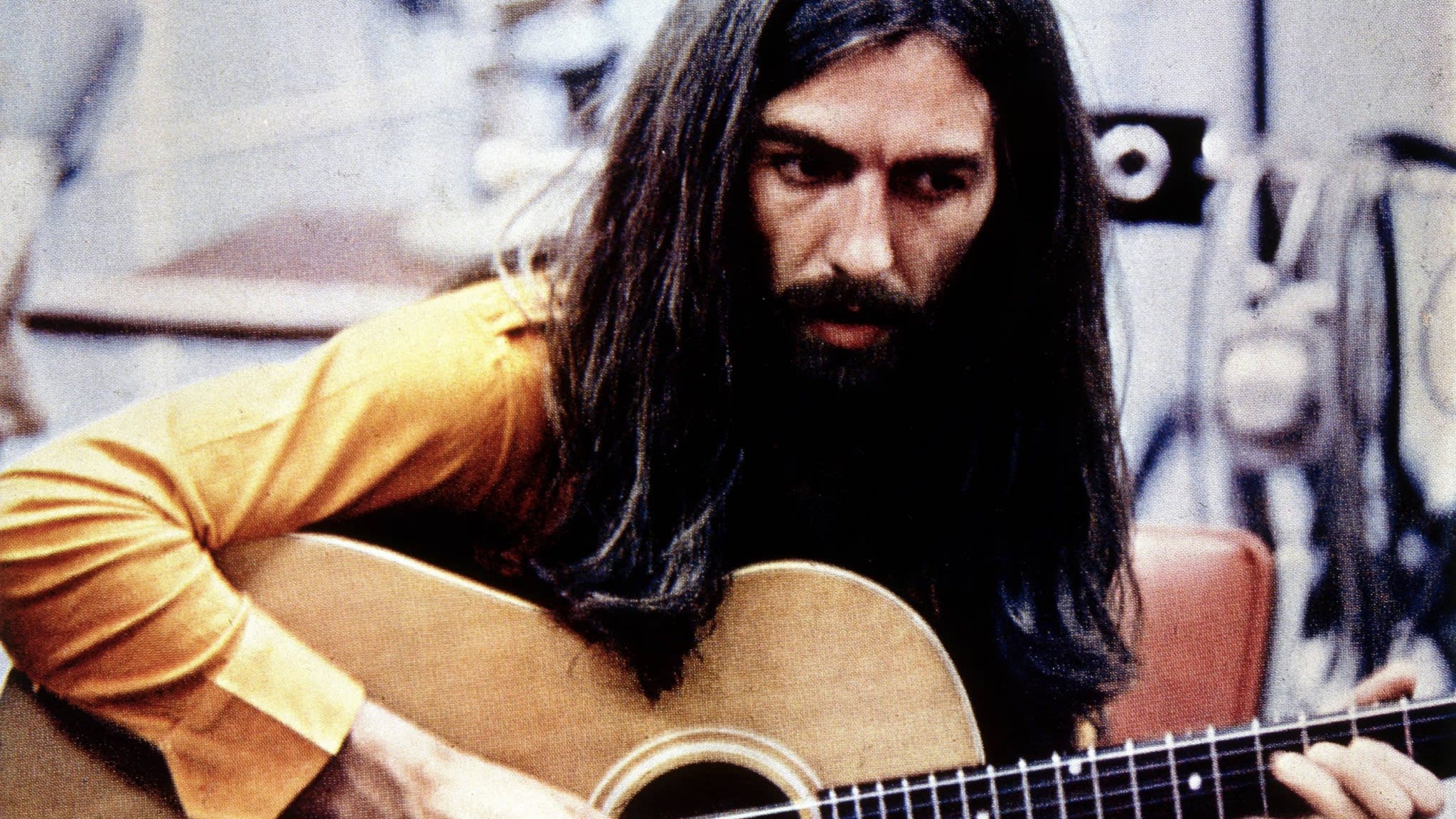“Every time I put the radio on, it’s ‘Oh my Lord’,” said John Lennon after his band-mate George Harrison scored the first number one hit by any solo Beatle. “I’m beginning to think there must be a God.”
Along with its parent album, All Things Must Pass, “My Sweet Lord”cemented the reputation of “the quiet one” as a great songwriter overshadowed by Lennon and McCartney.
George Harrison was inspired to write a multi-faith devotional song in 1969 after hearing the Edwin Hawkins Singers’ gospel hit “Oh Happy Day”. Billy Preston, a Beatles collaborator, was first to record “My Sweet Lord” (he also sings an intense version with Aretha Franklin’s backing band on King Curtis’s Live at Fillmore West album). But it was quickly eclipsed by Harrison’s own version, released in November 1970, bolstered by Phil Spector’s lavish production and an all-star cast of Preston, Ringo Starr, Eric Clapton and Badfinger.
But no sooner had “My Sweet Lord” crowned the American charts than a plagiarism suit was launched by Bright Tunes, the publisher of “He’s So Fine”,a 1963 hit by The Chiffons and written by their late manager Ronnie Mack. (Mack, who died aged 23, inspired the Holland-Dozier-Holland song “Jimmy Mack”, a 1967 hit for Martha and the Vandellas.)
In response, Allen Klein, whose involvement in The Beatles’ management had contributed to the group’s break-up, suggested that Harrison buy Bright Tunes. The company declined, instead demanding a share of income from “My Sweet Lord”.
Harrison took his guitar to the court and demonstrated how he wrote the song, but in 1976 he was found to have committed “subconscious plagiarism”. Yet the lawsuits continued. After Harrison, along with Lennon and Starr, had severed links with Klein in 1973, Klein had bought Bright Songs and now owned the rights to “He’s So Fine”. An eventual settlement in 1998 awarded the rights to both songs to Harrison in the UK and North America and Klein everywhere else.
Harrison’s confidence as a songwriter was shaken by the plagiarism case. “It’s difficult to just start writing again after you’ve been through that,” he told Rolling Stone. “When I put the radio on, every tune I hear sounds like something else.” The lyrics of his 1976 single “This Song”offer a wry commentary on the saga: “This tune has nothing Bright about it.” As well as the ubiquitous Preston on keyboards, it features Eric Idle chirrupping in his Monty Python falsetto: “Could be ‘Sugar Pie Honey Bunch’ ... No, sounds more like ‘Rescue Me’.”
Whatever the song’s genesis, many artists, including Motown singer Edwin Starrand reggae band Byron Lee & the Dragonaires, have covered “My Sweet Lord”. Most notably, it was commandeered by Nina Simone for an 18-and-a-half-minute tour de force, recorded live with a Baptist choir before an audience of soldiers at Fort Dix, New Jersey. Simone merges “My Sweet Lord” with the poem “Today Is a Killer” by David Nelson of The Last Poets to make a statement against the Vietnam war. It formed the centrepiece of her 1972 album Emergency Ward!, on which she also covered Harrison’s “Isn’t It a Pity”, the B-side of “My Sweet Lord”.
With remarkable chutzpah, in 1975 The Chiffons themselves released a version of “My Sweet Lord”,hoping to capitalise on interest in the court case. Despite its archness (they start singing “He’s So Fine” before the fade), it exudes charm and warmth.
Yet “My Sweet Lord”’s success owed as much to its sound as to the song itself. It established Harrison’s slide guitar as his signature, so much so that Paul McCartney attempted to stop him using it on Lennon’s “Free as a Bird” when the remaining Beatles reconvened in 1994: “I thought, oh, it’s ‘My Sweet Lord’ again.”
Harrison returned to “My Sweet Lord” in 2000, stripping away its hooks on a new version for the remastered All Things Must Pass. But the Spector version remained definitive. After Harrison’s death from cancer in 2001, “My Sweet Lord” again topped the British charts.
We’re keen to hear from our readers. Whose version of ‘My Sweet Lord’ is the best? Let us know in the comments below
‘The Life of a Song: The fascinating stories behind 50 of the world’s best-loved songs’, edited by David Cheal and Jan Dalley, is published by Brewer’s
Music credits: Universal Music Catalogue, Special Markets USA, EMI UK Beatles, Universal-Island Records Ltd, Shami Media Group 3
Picture credit: GAB Archive/Redferns
